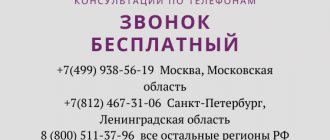On the territory of the Russian Federation, all citizens who belong to socially vulnerable segments of the population can count on state support.
Single mothers can also count on support from the state, which offers a wide range of benefits for this category of citizens. In particular, single mothers cannot lose their jobs in the event of layoffs, have priority rights when enrolling children in preschool institutions, and receive free vouchers. Privileges also apply to paying taxes. Let us consider the procedure for preferential taxation in more detail.
Features of income tax for single mothers
Let's start with the fact that not all women raising children on their own can count on preferential taxation.
For this, the status of a single mother is necessary. From a legal point of view, women are recognized as single mothers:
- those who gave birth to a child without being officially married, without recognizing the paternity of the baby: there is a dash in the birth certificate;
- who adopted a child without being legally married;
- raising a child whose paternity has been disputed.
If the father has recognized the child, the mother can no longer be considered single. In this case, the fact of living together does not play a significant role. If the status is confirmed, the woman becomes entitled to a number of tax breaks.
What do you need to know?
Dear readers! The article talks about typical ways to resolve legal issues, but each case is individual. If you want to find out how to solve your particular problem , contact a consultant:
8 (800) 700 95 53
APPLICATIONS AND CALLS ARE ACCEPTED 24/7 and 7 days a week.
It's fast and FREE !
The legislation of the Russian Federation indicates that a mother is single if she meets the following requirements:
- in the birth certificate there is a dash in the “father” column;
- on the birth certificate, the father’s name is indicated according to the mother’s words;
- an application was not submitted to the court to recognize the person as the father;
- the child was born out of wedlock, and the father was not identified;
- the child is adopted by an unmarried woman.
The mother will have the right to officially become single if:
- there is no information about the father on the birth certificate;
- woman is a widow;
- no alimony payments are received;
- the father is deprived of parental rights.
But this status will need to be confirmed. This is necessary to obtain the entire list of possible benefits for single mothers.
Single mothers will receive several benefits at once:
- The woman is employed and has the right to receive leave, which will be spent raising a child. She has every right not to go to work at night or after the end of her shift, and to refuse business trips. An employer does not have the right to fire a single mother on his own.
- A woman receives priority right to employment. That is, the employer must first consider the application of such a candidate, and then justify the refusal to hire in writing. If the reason is not sufficient, then the mother can go to court to clarify the detailed circumstances.
- To receive all possible benefits and allowances, a woman must contact the social protection authorities. The list of benefits will be regulated depending on the region of residence.
- The benefits continue until another man adopts the child.
- Reduction of working hours with a written application.
- Improving living conditions at the expense of the state.
- Priority for a place in school or kindergarten. Other benefits at places of study.
- Receiving free medications.
To receive any of these benefits, you will need to obtain confirmation of your official status as a single mother.
How are taxes deducted from the wages of single mothers?
Let's start with the fact that the right to tax breaks applies to all citizens raising children. According to the provisions of Article 218 of the Tax Code of the Russian Federation, the following amounts are established here:
- first and second child - 1,400 rubles;
- third and subsequent ones - 3,000 rubles;
- disabled children - 12,000 rubles (for a parent, spouse (and) parent, adoptive parent) and 6,000 rubles (for a guardian, trustee, adoptive parent, spouse (and) adoptive parent).
At the same time, deductions for disabled children are provided regardless of the order of birth of the children. Also, the deduction for a disabled child is summed up with the deduction that is provided for the child, taking into account the order of birth (clause 14 of the Review, approved by the Presidium of the Supreme Court of the Russian Federation on October 21, 2015).
When determining the amount of the deduction, the total number of children is taken into account, without taking into account the age of the children, that is, the order of birth is observed (Letter of the Federal Tax Service of Russia dated January 23, 2012 N ED-4-3 / [email protected] ).
Single mothers are in a more privileged position, so they receive double tax deductions. In particular, for the first two children the rate is set at 2,800 rubles, for the third 6,000, for a disabled child - 24,000 rubles.
Download for viewing and printing:
Article 218. Standard tax deductions of the Tax Code of the Russian Federation
What deductions can a single mother receive?
Tax deductions for single mothers in 2020 can be divided into 2 main categories:
- Deductions that are guaranteed by law only for single mothers (and fathers raising their own or adopted children on their own). In fact, here we are talking about only one privilege - a standard social deduction for personal income tax, provided under special conditions (we will study it in more detail later in the article).
- Deductions that single mothers can apply for on the same basis as any other citizens.
The most common types of such deductions include:
- property;
- social.
Single mothers will also have access to any new tax deductions. In 2020, however, they did not appear.
At the same time, the registration of each of the “general civil” deductions may have features predetermined by the fact that their applicant will be a single mother.
First of all, let’s study what the size of tax deductions are in 2019 for each parent or guardian who is supporting the child.
Required documents
Documents certifying the right to receive tax privileges are transferred to the accounting department of the organization where the single mother works.
An application for preferential taxation is submitted from the moment the grounds arise, for example, if a woman gave birth to or adopted a child without being in an officially registered marriage and without establishing paternity. If a tax deduction was provided at your previous job, a 2-NDFL certificate is sent to the accounting department. This document clearly confirms what tax has been withheld since the beginning of the year. In addition to the application, the following documents will be required:
- birth certificate;
- act of establishing guardianship;
- passport: photocopy of pages confirming that the applicant is not officially married;
- medical report if the child is disabled;
- certificate from the place of study - if the child is over 18 years old, but continues to receive education.
Important! The application and the listed documents are submitted only once during employment, however, if the grounds for receiving a tax deduction change. This may include situations when a second child is born or a woman gets married and her husband adopts children. In such cases, the documents are collected again.
Persons entitled to use the deduction
The right to receive a tax deduction is granted only to citizens of the Russian Federation who have an official salary and, accordingly, their employer deducts 13% of their income as tax payment.
In addition to wages, income on which tax must be paid is money received after the sale of real estate and securities, or renting out an apartment. This activity is also subject to income tax. Providing benefits is possible in the case when a working citizen buys an apartment or house, a garage, takes out a mortgage, pays for education, undergoes paid treatment and is forced to buy expensive medicines.
How is the tax deduction applied?
In general, a single mother should not ask this question: the required deductions are made by the company’s accounting department. However, it would be useful to know the mechanism for using such calculations. Let's consider the principles of making such deductions.
How much can you expect?
As discussed above, a tax deduction is available to all parents and guardians raising children under the age of 18.
However, single mothers are entitled to a double deduction, so the amount of reduction in the tax base will be doubled. Currently, single mothers receive payments in the following amounts:
- one child - 2,800 rubles;
- two children - 2,800 rubles;
- three or more children - 6,000 rubles;
- for a disabled child - 12,000 rubles.
Let us remind you that the deduction is provided until the age of 18. In cases where a child of a single mother enters a full-time department of a university, the period for granting tax privileges is extended to 24 years.
How are calculations made?
The tax deduction is quite simple: the tax base is reduced by a fixed amount, after which income tax is charged. However, a number of nuances need to be taken into account here.
In particular, the privileges accrued are cumulative. For greater clarity, we give a small example of calculations. Let’s say that a certain citizen Alexandrova is raising three children born out of wedlock; paternity of the children has not been established. Considering that the relationship was not registered and there is a dash in the “Father” column, Alexandrova is considered a single mother, and therefore has the right to a double tax deduction.
So, for the first two children, a woman is entitled to a tax privilege in the amount of 2,800 rubles, for the third child - 6,000. By adding, the total tax deduction will be 11,600 rubles. Let’s imagine that Alexandrova’s monthly salary is 50,000 rubles. Tax-free income is subtracted from this amount: 50,000 - 11,600 = 38,400 rubles. This is the tax base from which income tax will be withheld in the amount of 13% or 4,992 rubles.
After paying taxes, 33,408 rubles remain, to which the tax-free amount is added. As a result, a single mother will receive 45,008 rubles. If the woman had not exercised the right of tax deduction, after withholding 13%, her salary would have been 43,500 rubles. At first glance, the difference is insignificant, but for a single mother, an amount of 1.5 thousand rubles can be a good help.
The principle of reducing tax deductions
Today, the upper financial limit of preferential taxation is set at 350,000 rubles. If the total amount of privileges granted reaches this threshold, the preferential taxation ceases to apply until the end of the calendar year.
Refusal to provide a child deduction in 2020
Refusal to pay required tax deductions may occur in cases where:
- the declaration is filled out incorrectly or with errors;
- the application was not submitted at the place of registration;
- not all necessary documents have been provided;
- discrepancies in the data in the declaration and the documents provided (for example, the cost of purchased housing is incorrectly indicated in the contract and declaration);
- the deadline for filing a declaration has been missed (after 3 years have passed from the period of tax payment and expenses).
In a situation where a benefit is denied due to simple grammatical errors or lack of documents, you should resubmit the application in the required form with a complete package of documents.
Single mothers have the same rights to tax breaks as other citizens. To receive a double deduction before your child turns 18, you simply need to officially confirm your status as a single parent. All cases of tax breaks are specified in Articles 218-219 of the Tax Code of the Russian Federation.
If the woman remarried
It is noteworthy, but the fact that the mother of the children is officially married deprives her of the right to receive a double tax deduction.
So, paragraph 12, paragraph 4, paragraph 1 of Article 218 of the Tax Code of the Russian Federation, the provision of a double deduction to a single parent ceases from the month following the month of his marriage. Note that in this case, the woman retains the right to tax deduction on a general basis. In particular, the amount of 1,400 rubles is established for the first and second child, 3,000 rubles for the third, and 6,000 rubles for disabled children. Documents about changes in status are transferred to the accounting department of the enterprise.
Benefits for single mothers: property deductions
Probably the most common property deduction, a single mother has the right to receive on the same basis as other citizens. In this case, obtaining a deduction will be possible even if the apartment was purchased for a child and registered in his name. The child, in turn, does not lose the right to his deduction.
In 2020, the size of the tax deduction limits for an apartment and the procedure for registering it for single mothers are the same as for other citizens. The applicant can claim an amount of 13% of the cost of purchasing an apartment (but not more than 260,000 rubles). A tax deduction on mortgage interest in 2020 is, of course, also possible, and payment for it:
- will not be limited if the apartment was purchased before 2014;
- will be limited to 390,000 rubles if the apartment was purchased in 2014 or later.
The documents for deduction submitted to the Federal Tax Service are the same as usual (but they include the child’s birth certificate).
Individual nuances characterize the payment of personal income tax (when it is calculated) if an apartment owned by a child is sold.
If the child is not yet 14 years old, then only the mother can sell his apartment on her own behalf (Resolution of the Plenum of the Armed Forces of the Russian Federation dated June 23, 2015 No. 25), and in this case she will pay personal income tax. If the child’s age is from 14 to 18 years, then he will be able to sell the apartment himself with the consent of the mother and will have to pay personal income tax.
At the same time, since parents are obliged to support their children, as well as to protect their rights and interests (clause 1 of article 80 of the RF IC, clause 1 of article 64 of the RF IC), the child has the right to expect that when all proceeds from the sale of the apartment are spent, monetary His mother will provide him with funds to pay taxes.








